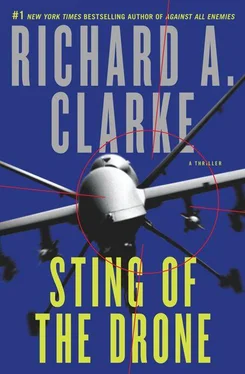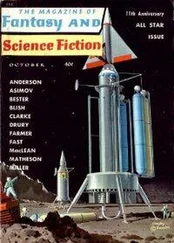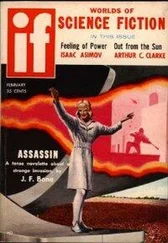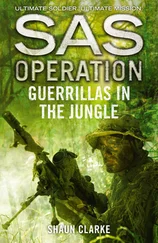“And yet, you blew up an orphanage,” Cross said.
Ray expected the orphanage question. “Charlie, we have flown over fifty thousand missions in the last five years. We do not want to make a mistake on any mission, but we have made rare mistakes. But we did not bomb an orphanage,” he replied. “Orphans were kidnapped by terrorists and hidden in a target. We learned from that and we take even more elaborate steps now to be sure that there are no civilians in the target area.”
“So how, then, did you kill an American, Wilhelm Stroeder, in Vienna, Austria?” Cross drilled. “Couldn’t the Austrian police arrest any terrorists, and was the American a terrorist?”
Ray did not see that coming. “Charlie, I can’t talk about specific operations. I can’t confirm allegations that there was a U.S. drone flight over this or that specific country.”
“Well, that sounded like an admission, but let’s get back to whether this new kind of weapon is a good idea. Is it really fair? You fly so high overhead, the enemy may not even be able to know you are there. Isn’t it like shooting fish in a barrel? The pilots are not at any risk, they can’t be hurt. Doesn’t it lower the barrier to lethal action?” Cross asked.
“It’s not fair,” Ray replied.
Cross was flummoxed for a moment. “So you agree with me?”
“The beauty of these weapon systems is that they defend American lives without risking American lives,” Ray said. “Our pilots are invulnerable.”
“What if drones were used against us?” Charlie Cross queried.
“We know that these weapons are not something that only the United States possesses. We would hope that any nation that uses them would use them with the care and high standards that we employ. If they are used against us, we will defend ourselves,” he answered.
“Do you think the people the U.S. is targeting with drones should defend themselves?” Cross asked.
“I’m glad that they can’t,” Ray shot back.
“So far,” Cross observed. “How long will these drone strikes go on, forever?”
“That’s up to the President, of course,” Ray answered. “But I think we all hope that the day would come when there is not an active terrorist threat to the United States.”
“Indeed, but maybe, just maybe as long as you are killing people, and leaving behind their sons and brothers, you are creating more and more terrorists and this becomes a war without end. Thank you, Raymond Bowman, for being with us tonight. We will be right back.” The bright lights faded.
Ray felt that he had been bettered by Cross, that he had not been as persuasive, as convincing as he wanted to be.
“You were great,” Linda Greene said as he walked off the set. “Dr. Burrell said to tell you.” She handed him a towelette to remove the makeup.
“I bet he says that to all the boys,” Ray said as he smeared off the makeup.
“And Dr. Burrell said to tell you that a K Call is under way, whatever that is,” Greene said as she dabbed his forehead. “They sent a car for you. It’s outside. So I guess I don’t get to drive you back.”
“That’s a shame,” Ray said, as he moved toward the lobby, “but thanks for your help.” Through the glass front door he could see a black Suburban sitting in front of the building. Nice, he thought, Burrell had sent the truck to rush him back to the PEG for the Kill Call. It probably had red and blue flashing lights in the grille, maybe a siren. As he approached the Suburban, the passenger door opened and an older African American woman emerged. “Are you Raymond Bowman?”
“You found me,” he said, smiling. “Thanks for coming.”
“This is a subpoena, Mr. Bowman. You have been served,” she said as she jumped back into the Suburban.
He looked at the document. It had the name of a plantiff, Janet Stroeder. He noticed that the list of defendants included Sandra Vittonelli. Her employment by the Agency, her relationship to the program was classified. “Fucking O’Connell,” he muttered.
“Mr. Bowman?” a pimply faced young man in an Army uniform said from inside a white Chevy Impala. “I’m your driver, sir. Where do you want to go?”
“Home,” he sighed, “but let’s go to Foggy Bottom.”
MONDAY, NOVEMBER 23
ABOARD THE USS ABRAHAM LINCOLN
THE GULF OF SIDRA, MEDITERRANEAN SEA
The large elevator reached the flight deck, ninety feet above the surface of the sea. It carried from the hangar below two men in blue vests and one thirty-eight-foot-long, matte gray, Sea Ghost aircraft, its wings folded up above the smooth, rounded fuselage. The drone, designated Caspar Six Charlie today, was reporting for duty. A man in a yellow vest, holding a remote control box with a joystick, steered the Sea Ghost from the elevator, across the flight deck, by the two alert F-18s, past a Seahawk helicopter, to a fueling area. He hit a switch that caused the aircraft’s wings to descend and lock into place. Its wingspan was now over sixty feet wide. Men in purple vests, known as grapes, leaped into action, running hoses and locking them onto each wing of the Sea Ghost.
Within minutes, the Sea Ghost’s tanks were filled and the yellow-vested controller moved the joystick again, gliding the Sea Ghost to the steam catapults that would launch it. Men in green vests bent below the drone, locking the aircraft’s wheels into the catapult’s channels. Nearby on the flight deck men in red vests, the armorers, watched. They had no role in this aircraft’s flight. It was flying unarmed, on a reconnaissance mission, patrolling the waters off Libya. Its bomb bay was filled with electronic spy gear instead of weapons. Two other Sea Ghosts sat below deck. If needed, they could be armed with air-to-air and air-to-ground missiles, fitted up inside a bomb bay in the smooth fuselage. When flying together the bat-shaped Sea Ghosts could swarm, flying in formation, communicating with each other with no human in the loop, deciding which of the drones should launch missiles against which of their assigned targets. If one were shot down, another would automatically assume its mission. If fired at, the aircraft could quickly pull such sharp turns that were there a human on board, he would quickly pass out. There were, of course, no humans on board. That would just have made the aircraft heavier, slower, and less effective.
Men in white vests did a last inspection of the Sea Ghost and then backed away, using hand signals to the yellow-vested controller. The controller looked one last time at his handheld device, checking the status of all onboard systems. Then he switched control to the aircraft itself. From now on it could fly a preprogrammed mission on its own, unless and until a human intervened. If none did, the Sea Ghost would patrol for four hours, then locate the Lincoln, signal for permission to land, and precisely set down on the rocking carrier flight deck, grabbing the arresting cable that would stop the aircraft’s forward motion.
Now, in autonomous mode, the Sea Ghost waited for the catapult. A second yellow-vested man knelt near the aircraft. He gave a thumbs-up to the Sea Ghost’s forward camera, then quickly dropped his arm, with his gloved hand pointing forward toward the sea. The forty-thousand-pound drone shot forward in a cloud of steam, left the deck, dropped briefly below the front of the Lincoln, then quickly rose as its one turbofan engine lifted the Sea Ghost up in a sharp climb toward the clouds.
There was no pilot assigned to that one drone, rather there was one flight supervisor below decks, monitoring the status of six Sea Ghosts aloft, some looking for aircraft, some looking for ships, others listening for electronic emissions. Two hours and fifteen minutes into the flight of Caspar Six Charlie something came up. Orders were received on the Lincoln and in minutes the flight “soup” got the kind of order he had been hoping to receive, an order to put a human in the loop. “Soup, take control of Six Charlie as its pilot and go feet dry. Set it on a vector to do photo recce of the Maaten al-Sarra air base.”
Читать дальше












